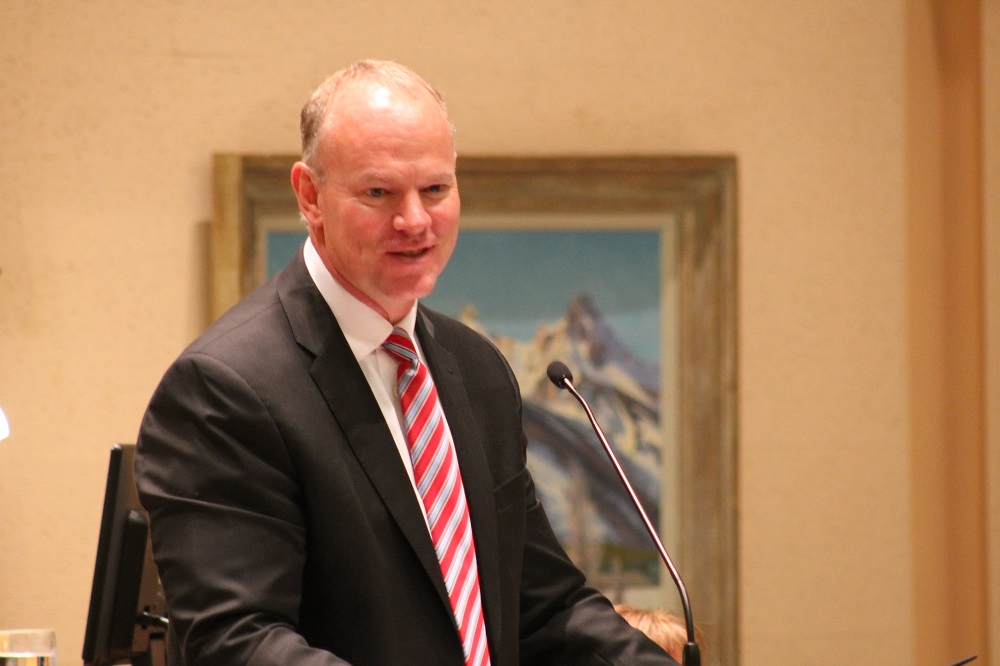
Gov 4-10-18
Ten teams were named as finalists for the NRG COSIA Carbon XPRIZE during the Bloomberg Future of Energy Summit in New York City. Five teams will continue on in the coal track and five will participate in the natural gas track. The five coal-track teams will be the first tenants of the Wyoming Integrated Test Center (ITC) where they will be able to test their processes and products utilizing captured carbon. The five coal track teams include;
- Breathe (Bangalore, India) – Led by Dr. Sebastian Peter, the team is producing methanol, a common fuel and petrochemical feedstock, using a novel catalyst.
- C4X (Suzhou, China) – Led by Dr. Wayne Song and Dr. Yuehui Li, the team is producing chemicals and bio-composite foamed plastics.
- Carbon Capture Machine (Aberdeen, Scotland) – Led by Dr. Mohammed Imbabi, the team is producing solid carbonates with applications to building materials.
- CarbonCure (Dartmouth, Canada) – Led by Jennifer Wagner, the team is producing stronger, greener concrete.
- Carbon Upcycling UCLA (Los Angeles, CA, USA) – Led by Dr. Gaurav Sant, the team is producing building materials that absorb CO2during the production process to replace concrete.
“I congratulate all the teams that participated in the Carbon XPRIZE, and am excited about the caliber of the five finalists,” said Wyoming Governor Matt Mead. “These teams have worked hard and will begin realizing their ideas on a full scale production level in Wyoming. I am looking forward to watching them set up and work on game changing uses for carbon at the Integrated Test Center. These teams and their innovations have the potential to revolutionize uses of carbon as a byproduct of coal.”
The NRG COSIA Carbon XPRIZE is a $20 million global competition to develop breakthrough technologies that convert the most CO2 into one or more products with the highest net value. A total of 47 teams entered the competition and 27 were selected in October of 2016 to advance to the second demonstration phase of the competition. Ten teams have now been selected to compete in the final round of the competition.
The five-year contest includes two tracks, with the new technologies tested at either a coal power plant (the Wyoming ITC) or a natural gas facility (Alberta Carbon Conversion Technology Centre in Calgary, Alberta). This third round entails larger scale technology demonstration under real world conditions, with access to test centers adjacent to existing power plants. For being a finalist, each of the ten teams will evenly share a $5 million prize. In each track, the winner will be awarded a $7.5 million grand prize. The winner is expected to be announced sometime in March of 2020.
About the ITC
The ITC is a public-private partnership designed to foster the next generation of energy technology. The ITC will provide space for researchers to test Carbon Capture, Utilization and Sequestration (CCUS) technologies using actual coal-based flue gas from the Dry Fork Station near Gillette.
In 2014, with the support and encouragement of Governor Matt Mead, the Wyoming State Legislature allocated $15 million in funding for the design, construction and operation of an integrated test center to study the capture, sequestration and management of carbon emissions from a Wyoming coal-based power plant. An additional $5 million commitment from private industry was required under the appropriation, which has since been secured from the Tri-State Generation and Transmission Association in addition to $1 million pledged from the National Rural Electric Cooperative Association. Basin Electric Power Cooperative is providing additional in-kind contributions including engineering and construction management services at the Dry Fork Station host site, which is jointly owned by Basin Electric and the Wyoming Municipal Power Agency.
The ITC is slated to be one of a handful of such facilities around the world and only the second one in the United States. While many carbon capture technologies are being developed and studied in laboratory settings, the ITC will be one of the few research and testing facilities at an operating power plant. The ITC will allow for real world testing at an active power plant and alleviates typical concerns over being able to transfer technology from a lab to a plant.



